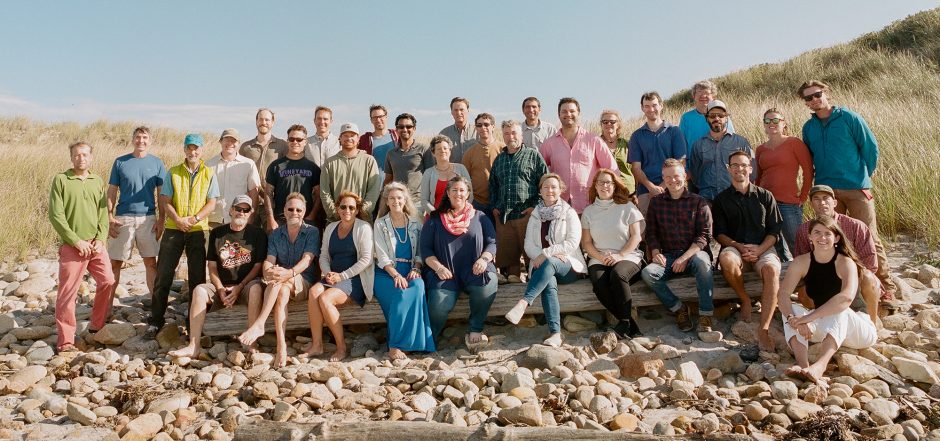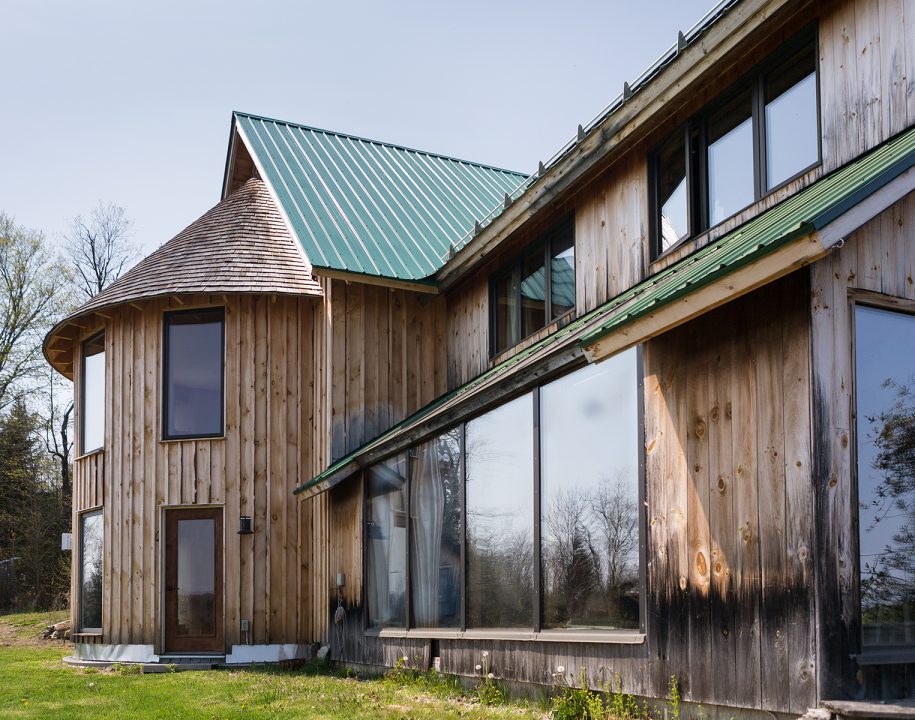At the end of 2019, the US Federation of Worker Cooperatives (USFWC) and the Democracy at Work Institute recorded 465 active worker co-operatives in America – up from 450 in 2017. But co-ops still comprise a tiny fraction of all American businesses.
Growing interest in democratic workplaces was the intended result of the Main Street Employee Ownership Act of 2018, but most co-ops are still in service and retail. As Americans continue pushing for a more democratic economy, the limited diversity in co-operative businesses is stifling for those from professional backgrounds. Fortunately, New England has been quietly developing its own professional co-op ecosystem, uniquely supported by an expanding number of design build co-ops.
Design build co-ops offer services including architectural consulting and design, engineering, carpentry, landscaping and solar energy. Two examples in New England are South Mountain Company and New Frameworks. Like most worker-owned companies in America, they were both converted from conventional businesses.

South Mountain, headquartered in Martha’s Vineyard, Massachusetts, was founded by John Abrams in 1975, and focuses on integrated architecture, engineering and construction that balances art, science and craft.
It converted to worker-ownership in 1987. Mr Abrams says long-term staff wanted to stay with the company while having more active role. “Employees who had been there from the beginning came to me and said, ‘We don’t want to go out and start our own business; we want to stay here for our careers’,” he explains. “I could have made them partial partners, [but] thought, why not develop a structure that invites people in and is truly democratic?”
New Frameworks, based in Burlington, Vermont, was founded by Ben Graham, Ace McArleton, and Jacob Deva Racusin in 2006, converting to a worker co-op ten years later. New Frameworks commits to “a kinder sort of building” that combines ecologically minded practices and comprehensive, full-service systems design. As a much newer business – in a less secure job market – it had different, more ideological, reasons to change.
“As we started to need staff, we knew we wanted to do it co-operatively,” says Mr McArleton. “But no matter how participatory or benevolent or inclusive an owner is, you just can’t replace the empowerment and [that] kind of direct responsibility.”
Often, the sale of a company from owner to employees requires additional funding from individual workers to collectively purchase the company’s assets. Further financing can also be necessary to hire the legal expertise to draft the co-op’s operating agreement. New Frameworks received a grant from the USFWC for legal support during the conversion. South Mountain used ICA Group, a Boston-based consultant specialising in employee-ownership conversions.
Because co-ops practice some form of profit sharing, they’re often recession resistant; Mr McArleton believes this comes from a fusion of worker solidarity and economic creativity – a combination that helps to avoid layoffs.

“We just say, ‘OK, how do we figure this out?’” he says. “Do we branch out to a different type of work that we weren’t doing before, or do we all drop down to three-fourths [working] time?”
With generational changes ushering in a more punitive economy – particularly for millennials – democratic workplaces can also preserve legacy businesses that would otherwise close as owners retire. “There are approximately 30 million small businesses in the US, and many of those were founded by ageing-out baby boomers, like me,” says Mr Abrams. “Some of those are going to get passed down within families but most are going to [close] with the retirement of the founder.
“Many owners who put much of their life, heart, and soul into these enterprises want to see them endure … conversion to a worker co-op is becoming a more likely entity of choice.”
Employee-ownership is not just about survival: it also allows businesses to focus on more than just profit. South Mountain and New Frameworks, like many design build co-ops, follow the triple-bottomline philosophy that considers people, planet, then profit – leading to green design models.
The triple bottom line creates a clear distinctionbetween design build co-ops and conventionaldesign build businesses, that often focus solely on profit. Another difference is the working environment for employees. In non-democratic workplaces, engineers and architects often work more than 50 hours a week. At New Frameworks the average week is 40 hours, and at South Mountain it ranges from 32 to 42 hours.
The wage structure is also unusual. Typical American workplaces see pay increase – often exponentially – with experience. The difference in hourly wage between the highest and lowest wage earner at New Frameworks is $11. South Mountain maintains its maximum pay ratio at five-to-one.
This shallow pay gap is surprisingly antihierarchical in an industry that often correlates qualifications and experience with better service delivery. Mr McArleton says the differences in experience are reflected in client-facing work, but minimised internally.
“There’s some good reasons for a chosen consensual hierarchy based around skill and experience in some trades because it’s a safety issue,” he says. “You can’t have somebody who’s an apprentice at the same level as someone who’s been a carpenter for 30 years.”
This creates a dynamic that Mr McArleton describes as “vertical in the field and horizontal in the boardroom”. At New Frameworks, worker owners are compensated equally for board (logistical co-op management) work. This, coupled with profit sharing, further flattens the hierarchy.
The vibrancy of the New England co-op space is unique in a way that may be legally prohibitive elsewhere, but Mr McArleton thinks tradition is also a key factor. “In Vermont, we have a tradition of town meetings,” he says. “I think there’s some weight to people understanding and seeing traditions of direct democracy in practice and being able to say, ‘oh we can do work like this’.”
Tradition might be the source of workplace democracy in New England, but the trend toward worker-ownership is just the first experiment in a new American economy. Fundamentally, Mr McArleton, and others, see co-operatives as “little laboratories and workshops for democracy”.